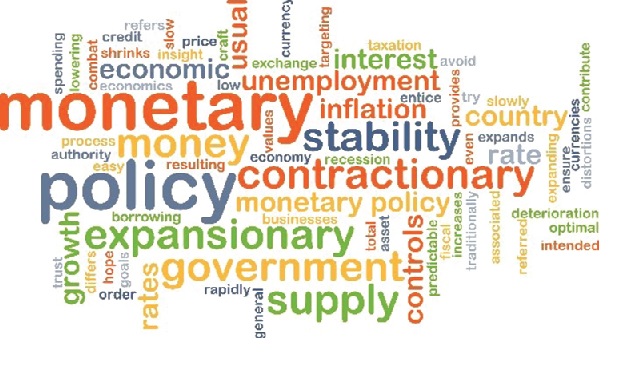There is always a cue when assessing the performance of an economy. Bernard Otabil explains
In this column's Saturday, August 9, edition, I attempted to explain monetary policy under the headline, Monetary Policy- Plain and Simple Facts.
In that edition, I used the 125th Monetary Policy Committee (MPC) of the Bank of Ghana’s meetings and monetary policy decisions to explain the concept.
The 125th MPC meetings were held from July 28 to 30, 2025, and at the end of the deliberations, the Committee, by a majority decision, reduced the Monetary Policy Rate (MPR) by 300 basis points to 25.0 per cent. Since that edition, I have had some interesting engagements, most with young people, about their understanding of how the work of the MPC impacts their lives.
Well, since the MPC meetings are held every two months, the MPC concluded another meeting on September 17, with the Committee announcing a 350 basis points reduction in the MPR to 21.5 per cent.
At the press conference to announce the decision by the Committee, Governor Johnson Asiama said: “Given the current state of macroeconomic conditions, the view of the Committee was that inflation will continue to ease in the near term.
In the outlook, headline inflation is expected to drop to within the medium-term target of 8 ± 2 per cent by the end of the fourth quarter.”
“However, the possible upward review of utility tariffs could exert some price pressures in the medium term. Notwithstanding this, maintenance of an appropriate monetary policy stance, strong sterilisation efforts, ongoing fiscal consolidation and adequate reserve buffers should sustain the disinflation process,” the Governor added.
Concluding, the Governor said: “Given these considerations, the Committee, by a majority decision, voted to lower the Monetary Policy Rate by 350 basis points to 21.5 per cent.
The Committee will continue to monitor macroeconomic developments and take the appropriate policy decision as and when necessary to reinforce the disinflation process”.
So, what does it all mean to you? Bear in mind that actions taken by the central bank to manage money supply, interest rates and influence the overall economic activity constitute monetary policy.
The objectives of monetary policy are clear, and most central banks have these objectives set out in law.
For example, you have controlling inflation, stimulating economic growth and maintaining financial stability as clear monetary policy objectives for central banks.
But most central banks have a primary mandate of maintaining stability in the general level of prices so that they are not only low but stable too.
The MPR is a benchmark rate, which is a key monetary policy tool. Central banks use the MPR to influence the cost of borrowing, and the Bank of Ghana uses policy tools, including the MPR, to manage inflation. The MPR sets the tone for other interest rates in the economy.
Now let’s get more practical here. So long as you live, you will be affected by the cost of living, somewhat.
In broad terms, several factors contribute to the overall cost of living. For instance, if inflation is rising, and your income is not inflation-indexed, what it means is that any time inflation affects the things that you usually buy, in real terms, you lose some value in your money because you cannot secure or procure what you normally buy.
This feeds into the cost of living, in this case, negatively.
Then, if interest rates also go up, and your mortgage or other debts are on a variable interest rate, you will have to pay more. Once this cost component goes up, it increases your cost of living. In all, the cost of living is about everything, from increased child costs to transport fares.
So, like you, central banks also worry when the cost of living is high and, therefore, inflation, which literally takes additional money from you, is getting out of control.
One very important dominant factor in loan and other credit agreements is the interest rate. Interest rates set out the terms for using someone else’s money, literally.
What this means is that banks and other financial institutions may not necessarily give you money that they own themselves.
By the privileged positions that banks and financial institutions occupy as financial intermediaries, they can raise money from those with “surplus” and make it available to those who need it.
And, since there is no free lunch, those who need funds and, therefore, borrow money from the banks and other financial institutions are paying for using other people’s money. That is what an interest payment is - the cost of using funds that don’t belong to you!
Because of the importance of the MPR, whenever a decision is made by the MPC, experts comment on the possible impact of the rate reduction or increase on asset pricing, and the commentaries are largely influenced by how the rate could impact the direction of interest rates in the economy.
When a central bank changes the MPR, it is expected to affect various asset classes, including interest rates, bond prices, stock prices, currency, etc.
As I explained in the Saturday, August 9 edition, the policy rate reflects developments in the economy, and any sign of recovery of the economy reflected in reduced MPR is a big relief to many.
Recovery is not only a story of good economic sense, but also of apparent social improvement and transformation.
When the Bank of Ghana announces the policy stance, the effect is that financial institutions would have to factor that into their loan pricing, for example. It could also move savings interest.
Now, I guess you can imagine how the current 350 basis points reduction will affect interest rates.
botabil@gmail.com
